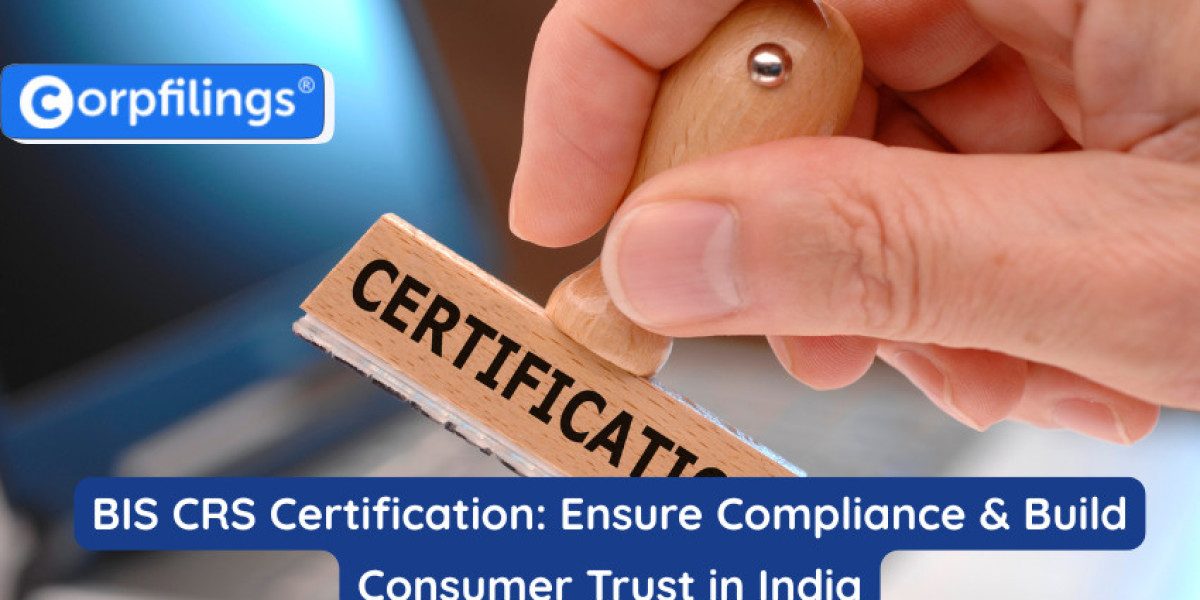In India, quality and safety play a crucial role in consumer decisions. With thousands of products flooding the market, how do customers know which ones meet the highest standards? That’s where BIS Certification steps in. It’s not just a regulatory requirement—it’s a mark of assurance that your product is reliable, safe, and compliant with Indian quality norms.
What is BIS Certification?
BIS Certification is granted by the Bureau of Indian Standards (BIS), the national standards body of India. It ensures that products conform to specific Indian Standards (IS) in terms of quality, safety, and performance.
This certification is mandatory for certain products like electrical appliances, cement, packaged drinking water, and household items, while voluntary for others. For businesses, BIS Certification acts as a bridge of trust between manufacturers and consumers.
In simple terms, BIS Certification is proof that your product has been tested and meets the required quality benchmarks set by BIS.
Why is BIS Certification Important for Manufacturers?
BIS Certification is not just a compliance formality—it’s a strategic move that can elevate your brand reputation and market reach. Here’s why it matters:
1. Builds Consumer Trust
Customers today are more aware and cautious about product quality. A BIS-certified product instantly assures them of safety and performance, leading to stronger brand loyalty.
2. Enables Market Access
For many regulated sectors, selling products without BIS Certification is prohibited in India. Hence, having this certification allows legal market entry and smooth business operations.
3. Prevents Product Rejection or Penalties
Products lacking mandatory certification may face rejection, seizure, or heavy penalties. Obtaining BIS Certification helps you avoid such business disruptions.
4. Improves Product Quality
The certification process involves product testing, audits, and inspections—pushing manufacturers to maintain higher production standards consistently.
5. Enhances Global Competitiveness
A BIS-certified product stands out not just in India but also in international markets. It reflects a company’s commitment to quality and compliance, building global credibility.
Types of BIS Certification Schemes
BIS offers different certification schemes to suit various business requirements and product categories. The main ones include:
1. ISI Mark Certification
This is the most common scheme and applies to products manufactured in India. The ISI mark on a product indicates it complies with Indian Standards for quality and safety.
2. FMCS (Foreign Manufacturers Certification Scheme)
This certification allows foreign manufacturers to sell products in the Indian market under the BIS license. It ensures imported goods meet Indian quality requirements before being marketed locally.
3. CRS (Compulsory Registration Scheme)
Under the CRS, manufacturers of electronics and IT products must register their goods before sale. This is mandatory for items like mobile phones, LED lights, and laptops to ensure safety compliance.
Step-by-Step Process for Obtaining BIS Certification
Getting BIS Certification involves several stages. Here’s a simplified version of the process:
Step 1: Identify the Applicable Indian Standard
Each product category has its specific standard code under BIS. You must determine which standard applies to your product.
Step 2: Submit the Application
The manufacturer needs to apply to BIS, providing product details, factory information, and test reports from a BIS-recognized lab.
Step 3: Factory Inspection
BIS officials inspect the manufacturing facility to verify quality control, production processes, and infrastructure.
Step 4: Product Testing
Samples are tested in an approved laboratory to ensure they meet the required Indian Standards.
Step 5: Certification Grant
Once the product passes testing and inspection, BIS issues the certification, allowing you to use the BIS or ISI mark on your products.
Step 6: Renewal and Surveillance
BIS Certification is valid for a specific period, after which it must be renewed. Periodic surveillance audits and product testing are conducted to ensure ongoing compliance.
Documents Required for BIS Certification
The list of documents may vary based on the certification type, but generally includes:
- Business registration proof
- Factory layout plan
- Product specifications and drawings
- Quality control manual
- Authorized signatory details
- Test reports from BIS-approved labs
Ensuring complete and accurate documentation helps prevent delays in approval.
Benefits of BIS Certification for Businesses
For manufacturers, BIS Certification offers both tangible and intangible benefits:
- Legal permission to sell regulated products in India
- Enhanced customer trust and brand reputation
- Better product performance through continuous quality monitoring
- Competitive advantage in both domestic and international markets
- Reduced chances of product failure, recalls, or customer complaints
In short, BIS Certification acts as a symbol of integrity for any business that values consumer satisfaction and safety.
Common Challenges During BIS Certification
Many manufacturers, especially small and medium enterprises, face hurdles during the certification process. Common challenges include:
- Unclear understanding of applicable standards
- Incomplete documentation or lab reports
- Delays in testing or inspection scheduling
- Communication gaps between manufacturer and BIS officials
To avoid these issues, businesses often hire professional consultants who handle end-to-end certification—from documentation to final approval—saving time and effort.
How Professional Assistance Simplifies the Process
Getting BIS Certification can be time-consuming without proper guidance. Expert consultants help you:
- Identify the correct product standard and category
- Prepare and review required documents
- Coordinate with BIS officials and testing labs
- Ensure compliance with Indian regulations
- Expedite the overall approval process
Their experience helps you achieve certification faster and ensures your product meets all necessary quality requirements.
Conclusion
BIS Certification is more than just a compliance mandate—it’s a powerful tool for building consumer confidence and ensuring product reliability. Whether you’re a domestic manufacturer or an overseas company planning to enter the Indian market, securing BIS Certification positions your brand as credible and trustworthy.
By adhering to BIS standards, you’re not only safeguarding your customers but also strengthening your market presence in the long run.
FAQs
1. Is BIS Certification mandatory for all products?
No, it’s mandatory only for products listed under the compulsory certification scheme, such as electrical goods, cement, and packaged water.
2. How long does it take to get BIS Certification?
The duration depends on the product category and documentation readiness. On average, it takes 4 to 6 weeks.
3. What is the validity period of BIS Certification?
Usually, BIS Certification is valid for two years and can be renewed by submitting updated documents and test reports.
4. Can foreign companies apply for BIS Certification?
Yes, foreign manufacturers can apply under the FMCS scheme to sell products in India.







